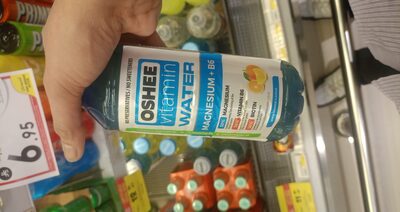
Barcode: 5908260250515
Magnesium B6
HALAL
📝 Reason: This product does not contain any ingredient or E-Code from the provided Haram or suspicious list. However, ‘natural flavors’ is flagged as Doubtful unless the origin is clarified, since such flavorings may use animal-derived carriers or solvents. Per Islamic dietary law (Quran 5:3) and IFANCA’s guidelines, if an ingredient’s source is uncertain and no Halal certification exists, it must be considered Doubtful. Other ingredients are universally accepted as Halal in their common forms. (IFANCA, www.foodchemadditives.com)
🏷️ Category: Beverages, Dietary Supplements, Non Alcoholic Beverages, Sweetened Beverages
📄 Certificates: No Gluten, Vegetarian, No Preservatives, Vegan, No Colorings, Vegetarisch, Vegan
Ingredients:
Details
Understanding the Halal Status of Magnesium B6
When considering dietary supplements like Magnesium B6, it is crucial to ensure the products meet Halal standards. Magnesium B6, a dietary supplement primarily made up of essential vitamins and minerals, is designed to support overall health. Understanding its Halal status involves a detailed review of its ingredients and E-numbers.
Is Magnesium B6 Halal?
According to rigorous standards and evaluations, Magnesium B6 has been determined to be Halal. This conclusion is based on an analysis of the various components present in the product. Each ingredient was scrutinized against the definitions of Halal as outlined by Islamic dietary laws and guidelines from reputable certifying bodies like IFANCA.
Ingredient Breakdown
- Water: Plain water is inherently Halal as it is a natural substance and not derived from any prohibited source. Learn more.
- Sugar: Sugar is generally accepted as Halal unless processed with animal-based clarifiers, but such details are rare. Hence, it is commonly recognized as Halal. Discover more.
- Acidity Regulator: Citric Acid: This component is a plant-based acidulant, usually generated via fermentation from sugar; thus, it is Halal. Find out more.
- Natural Flavors: While natural flavors can be derived from either animal or plant sources, their origins are ambiguous. Without explicit Halal certification, they are considered ‘Doubtful.’ More details here.
- Vitamin Additives: Numerous vitamins in Magnesium B6, such as Niacin, Pantothenic Acid, Vitamin B6, Folic Acid, Biotin, and Vitamin B12, are generally synthetically produced or derived from plants, making them Halal. More insight can be found through this link for Niacin and additional sources for the other vitamins.
- Minerals: Magnesium Carbonate: Naturally occurring Magnesium Carbonate is Halal. You can explore more through this link.
- Antioxidant: Ascorbic Acid: Ascorbic Acid, or Vitamin C, is either plant-extracted or synthetically produced, rendering it Halal. More information is available at here.
Certification and Dietary Guidelines
Magnesium B6 is also associated with additional certifications like No Gluten, Vegetarian, No Preservatives, and Vegan. These certifications enhance its appeal to consumers who prioritize clean eating and ethical sourcing.
Given the data from reputable sources, it’s evident that, apart from the natural flavors, all other ingredients in Magnesium B6 are universally accepted as Halal in their common forms. The only ingredient that may require further inquiry is the ‘natural flavors,’ due to its ambiguous source.
Conclusion: Is Magnesium B6 Right for You?
If you are looking for a dietary supplement that aligns with your Halal lifestyle, Magnesium B6 stands out as an excellent choice, provided you clarify the source of ‘natural flavors.’ With its beneficial vitamins and minerals, it may play a significant role in your health regimen.
For more information about Halal dietary practices, feel free to explore further resources or consult Halal certifying bodies to ensure your food and supplements meet your ethical and spiritual standards.
